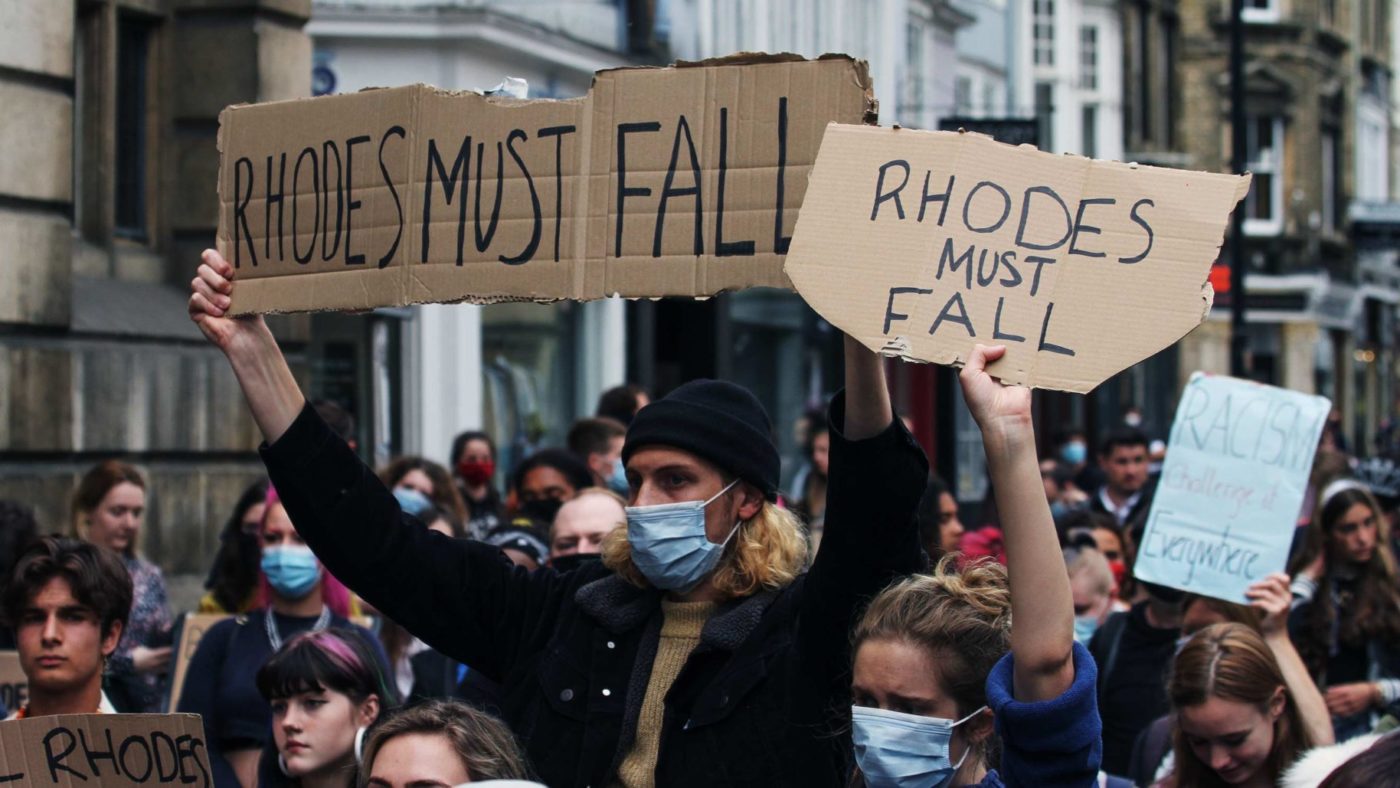I hoped that this sense of togetherness would continue, but it’s pretty clear that as some semblance of normality has returned, so too has much of the usual bickering across public life.
Whether it’s Brexit, transgender rights, Black Lives Matter or the bizarre rows about statues, a series of cultural debates have supplanted the sense of unity we felt back in spring. On top of those rumbling rows, we face a dreary winter with major restrictions on our lives and no clear path to normality in sight. It’s little surprise that many report feeling gloomier now than they were during the first lockdown.
However, if we put Covid to one side and look beyond the noisy media culture wars, I think there is good reason to feel more optimistic than for a long time.
Away from the rage of hard-line, unrepresentative activists, some of our divisions are starting to be properly addressed. And the even better news is that it’s happening well before we reach the stage of hyper-polarisation seen in the USA, and in ways that most people can get behind.
Take the recent government announcement about the Gender Recognition Act. There was pressure from well-heeled lobby groups to allow anyone who wished to change their official gender to do so, without the involvement of any medical experts – so called ‘self-ID’. The impact of such a change would have been huge, but it would have been understandable if the Government had gone along with it given the way previous administrations had allowed things to develop.
And yet it didn’t.
It rejected self-ID and kept doctors involved the process. Instead Liz Truss announced changes that gave transgender people better access to support and services. while cutting the cost of getting a Gender Recognition Certificate – the kind of compromise designed to bring as many people as possible on board. The result? Though there were complaints from the usual suspects, most people have either shrugged their shoulders or breathed a sigh of relief and got back on with their lives. It feels like the heat has been taken out of the debate, and a more sustainable position reached as a result.
It’s not just the transgender debate that has seen progress though. In the heat of Black Lives Matter protests it would have been easy to take the knee and pay lip service to sweeping, ill-defined and largely American-imported ideas like ‘white privilege’ or ‘systemic racism’. Again, though, we have seen an approach that seeks a middle ground – a very far cry from the tubthumping, crass debate across the pond.
The Government set up a Commission for Race and Ethnic Disparities to take a cool-headed look at the full range of evidence that might explain why different groups of people experience different outcomes in areas such as health, education and employment. Again, it’s so different from the hyper-polarisation we see in America. Certain leftwingers may love to compare Boris Johnson to Donald Trump, but could you ever imagine this president willingly setting up a taskforce to examine racial inequality?
Similarly, when museums and universities have removed displays or changed curriculums in response to protestors’ demands, the Government has quietly and calmly reminded them of their obligations to free speech and impartiality. It’s sad that they needed it, but now vice-chancellors and others have a good excuse to resist angry mobs.
And, as I set out here, the Department for Education recently reminded schools of their obligation to maintain balance and impartiality when covering political issues with pupils. This shouldn’t have been necessary, but it had become clear that some schools and teachers were presenting their personal prejudices as settled views when it came to contested topics like Brexit, environmental protests, anti-racism, and gender. After the initial reaction to the DfE guidance, a healthy discussion is taking place about how schools do the right thing.
None of the above means that we can relax and stop worrying about common sense being squeezed from public life – just look at the absurd case of the Met Police and Darren Grimes – but they are steps in the right direction. They should give us all hope that a way through the minefield of division is possible, and that people will follow if the Government takes the lead.
Instead of petty insults and debates that swiftly degenerate into slanging matches, we can still find sensible, consensual solutions to social issues. That means respecting public opinion, while accepting that not everyone will always get everything that they want.
That’s a far better approach than the nastiness we had before lockdown. 2020 hasn’t had much to recommend itself to posterity so far, but a better way to solve arguments and bring people back together would be a good start.
Click here to subscribe to our daily briefing – the best pieces from CapX and across the web.
CapX depends on the generosity of its readers. If you value what we do, please consider making a donation.


